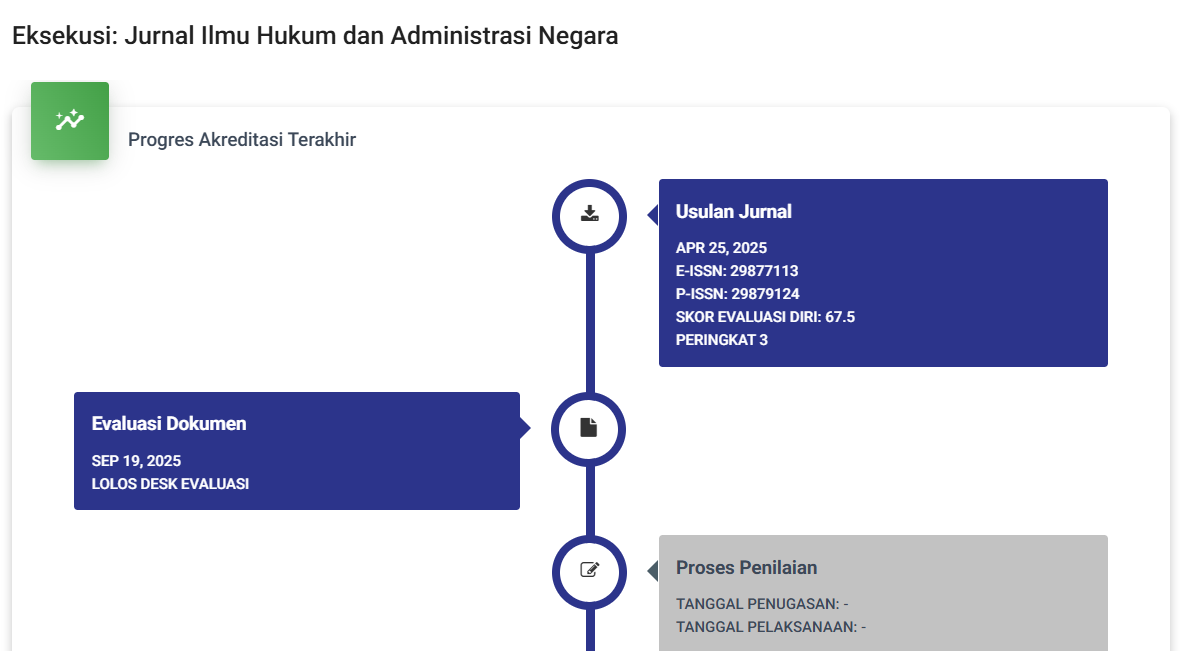Implementasi Hukum Militer dalam Penegakan Disiplin Anggota TNI di Wilayah Perbatasan
DOI:
https://doi.org/10.55606/eksekusi.v2i4.1534Keywords:
Military Law, Enforcement of Military Member Discipline, Border AreasAbstract
The application of military law in areas of high security risk presents complex challenges for field commanders. In conditions that are often unstable, such as in border areas or conflict zones, commanders must maintain troop discipline while ensuring the effective implementation of operational tasks. Taking into account the problems in this research, the research method used is a normative legal research method. Normative legal research is an activity that cites aspects originating from positive law. Normative legal research originates from applicable statutory provisions, Jurisprudence or Court Decisions, Legal Theory and Doctrine. This research was mostly carried out on secondary data in libraries. The main challenges faced include the stressed physical and mental condition of soldiers, limited resources, and persistent security threats. Field commanders need to apply military law strictly, but must also be wise in understanding the situations their soldiers face in the field. Additionally, they must make quick and sound decisions under pressure, often without adequate logistical or communications support from central command. Commanders must also consider the geopolitical impact of military actions in border areas, where any breach of discipline could affect the stability of local security as well as diplomatic relations. Therefore, adaptive leadership capabilities, deep contextual understanding, and good risk management are the keys to success in implementing military law in areas with high security risks.
References
Lubis, A. F., & Putra, I. (2024). Penyuluhan hukum tentang permohonan rekomendasi Ankum dan upaya hukum dalam menegakkan keadilan yang berdasarkan kepentingan hukum dan militer. Celebes Journal of Community Services, 3(2), 55-67.
Putra, T. D. (2013). Penerapan hukum militer terhadap anggota TNI yang melakukan tindak pidana disersi. Lex Crimen, 1(2).
Putra, T. D. (2013). Penerapan hukum militer terhadap anggota TNI yang melakukan tindak pidana disersi. Lex Crimen, 2(2).
Rachmawati, Y., Mulyono, M., & Maryani, A. (2024). Pengaruh reformasi hukum militer terhadap profesionalisme TNI: Tinjauan dari perspektif disiplin militer. Innovative: Journal of Social Science Research, 4(5), 5319-5327.
Ramdani, R. D. N. (2024). Menekan pelanggaran prajurit melalui kepemimpinan yang efektif dan penerapan reward-punishment. Retrieved from https://diskumal.tnial.mil.id/fileartikel/artikel-20180713-144205.pdf (Accessed on September 10, 2024).
Salam, F. (2006). Hukum pidana militer di Indonesia. Bandung: Mandar Maju.
Salam, M. F. (2006). Hukum pidana militer di Indonesia. Bandung: Mandar Jaya.
Saputra, M. R., & Setiadi, W. (2024). Implementation of general principles of good government in the organization of the 2024 elections. International Journal of Law and Society, 1(3), 94-112.
Sianturi, S. R. (1985). Hukum pidana militer di Indonesia. Jakarta: Alumni.
Sjarif, A. (2006). Hukum disiplin militer Indonesia. Jakarta: Rineka Cipta.
Sulistiriyanto, H. (2011). Pertanggungjawaban pidana anggota militer TNI yang melakukan tindak pidana disersi. Perspektif, 16(2).
Totok, S. (2021). Kajian hukum pidana militer Indonesia terhadap tindak pidana disersi. Jurnal IUS, 9(1).
Kementerian Pertahanan Republik Indonesia. (2008). Buku putih pertahanan Indonesia 2008. Jakarta: Departemen Pertahanan Republik Indonesia.
Kementerian Pertahanan Republik Indonesia. (2019a). Peran sumber daya pertahanan dalam mendukung sistem pertahanan negara. Jakarta: Biro Humas Setjen Kemhan.
Kementerian Pertahanan Republik Indonesia. (2019b). Membangun kapabilitas sumber daya manusia komponen utama menghadapi era perkembangan dan dinamika kondisi terkini. Jakarta: Biro Humas Setjen Kemhan.








